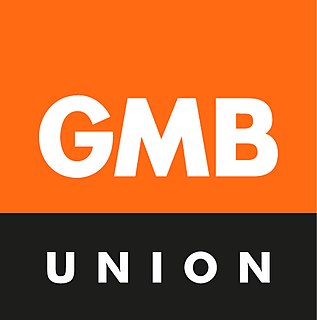Related Research Articles
A trade union, often simply called a union, is an organization of workers who have come together to achieve many common goals, such as protecting the integrity of their trade, improving safety standards, and attaining better wages, benefits, and working conditions through the increased bargaining power wielded by the creation of a monopoly of the workers. Trade unions typically fund the formal organization, head office, and legal team functions of the trade union through regular fees or union dues. The delegate staff of the trade union representation in the workforce are made up of workplace volunteers who are appointed by members in democratic elections.

Feta is a Greek brined curd white cheese made from sheep's milk or from a mixture of sheep and goat's milk. It is a soft, brined white cheese with small or no holes, a compact touch, few cuts, and no skin. It is formed into large blocks, and aged in brine. Its flavor is tangy and salty, ranging from mild to sharp. It is crumbly and has a slightly grainy texture. Feta is used as a table cheese, in salads such as Greek salad, and in pastries, notably the phyllo-based Greek dishes spanakopita and tyropita. It is often served with olive oil or olives, and sprinkled with aromatic herbs such as oregano. It can also be served cooked, as part of a sandwich, in omelettes, and many other dishes.

The General Confederation of Labour is a national trade union center, founded in 1895 in the city of Limoges. It is the first of the five major French confederations of trade unions.

The GMB is a general trade union in the United Kingdom which has more than 631,000 members. Its members work in nearly all industrial sectors, in retail, security, schools, distribution, the utilities, social care, the National Health Service (NHS), ambulance service and local government.
A national trade union center is a federation or confederation of trade unions in a single country. Nearly every country in the world has a national trade union center, and many have more than one. When there is more than one national center, it is often because of ideological differences—in some cases long-standing historic differences. In some regions, such as the Nordic countries, different centers exist on a sectoral basis, for example for blue collar workers and professionals.

The Swedish Trade Union Confederation, commonly referred to as LO, is a national trade union centre, an umbrella organisation for fourteen Swedish trade unions that organise mainly "blue-collar" workers. The Confederation, which gathers in total about 1.5 million employees out of Sweden's 10 million people population, was founded in 1898 by blue-collar unions on the initiative of the 1897 Scandinavian Labour Congress and the Swedish Social Democratic Party, which almost exclusively was made up by trade unions. In 2019 union density of Swedish blue-collar workers was 60%, a decline by seventeen percentage points since 2006. A strongly contributing factor was the considerably raised fees to union unemployment funds in January 2007 made by the new centre-right government.

The South Asian Free Trade Area (SAFTA) is an agreement reached on January 6, 2004, at the 12th SAARC summit in Islamabad, Pakistan. It created a free-trade area of 1.6 billion people in Afghanistan, Bangladesh, Bhutan, India, the Maldives, Nepal, Pakistan and Sri Lanka to reduce customs duties of all traded goods to zero by the year 2016. The SAFTA agreement came into force on January 1, 2006, and is operational following the ratification of the agreement by the eight governments. SAFTA required the developing countries in South Asia to bring their duties down to 20 percent in the first phase of the two-year period ending in 2007. In the final five-year phase ending in 2012, the 20 percent duty was reduced to zero in a series of annual cuts. The least developed countries in South Asia had an additional three years to reduce tariffs to zero. India and Pakistan ratified the treaty in 2009, whereas Afghanistan as the 8th member state of the SAARC ratified the SAFTA protocol on 4 May 2011.
The Trade and Industry Committee of the African Union's Economic, Social and Cultural Council is established to bridge Africa with the rest of the world, execute the investment and trade policies to boost inter and intra Africa trade, connect with stakeholders, organisations, enterprises to strengthen the economic integration, execute Agenda 2063 Continental Frameworks, provide agile and effective service to key projects, conduct business data analysis regarding the global trading business and its influence, and build Africa as an sustainable and powerful trading and industrial partner in the global arena during 2002, as a part of Africa Union, which was previously known as Organisation of African Unity (1963-1999). The current Commissioner of this department is H.E. Albert Muchanga from Zambia . This department covers the units of trade, industry, customs cooperation, AfCFTA and Mining. It deals with the following:

Central Única dos Trabalhadores, commonly known by the acronym CUT, is the main national trade union center in Brazil.
The Trade Union and Labour Party Liaison Organisation (TULO) is a labour organisation in the United Kingdom that was set up in 1994 by a motion to the Labour Party's Annual Conference. It had several forerunning organisations that coordinated trade union support for the Labour Party at election times such as Trade Unions for a Labour Victory and Trade Unionists For Labour. TULO is different in that, as a more formal organisation, it serves the dual purposes of not only coordinating trade union support for the Labour Party at elections, but also of acting as the channel of communication between the Party Leadership and its affiliated trade unions.

Trade Unionist and Socialist Coalition (TUSC) is a socialist electoral alliance launched in Britain for the 2010 general election.

The Durham Miners' Association (DMA) is a trade union in the United Kingdom.

The Irish Congress of Trade Unions, formed in 1959 by the merger of the Irish Trades Union Congress and the Congress of Irish Unions, is a national trade union centre, the umbrella organisation to which trade unions in both the Republic of Ireland and Northern Ireland affiliate.

An election to Northamptonshire County Council took place on 2 May 2013 as part of the 2013 United Kingdom local elections. Following a boundary review, the number of county councillors was reduced from 73 to 57 from this election. All members were elected by first-past-the-post voting from single-member electoral divisions for a four-year term of office. The Conservative Party held on to their overall majority, having held overall control of the council since 2005.
The Bristol Miners' Association was a trade union representing coal miners in Bristol and Bedminster in England.
The North East Lancashire Amalgamated Weavers' Association was a trade union federation of local weavers' unions in part of Lancashire in England, in the 19th century.
The North Staffordshire Miners' Federation was a trade union representing miners in the area of Stoke-on-Trent, located in Staffordshire, in England.
José Olivio Miranda Oliveira, often known as Zé Olívio, was a Brazilian trade unionist.
Since its foundation, IBM has not recognized any trade unions in the United States. In Europe and Australia there are several trade unions recognized by IBM, with limited recognition.
References
- ICTUR; et al., eds. (2005). Trade Unions of the World (6th ed.). London, UK: John Harper Publishing. ISBN 0-9543811-5-7.